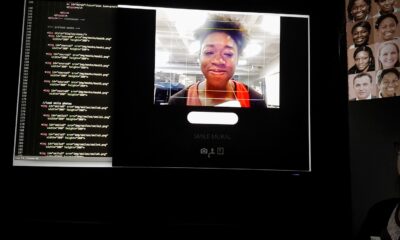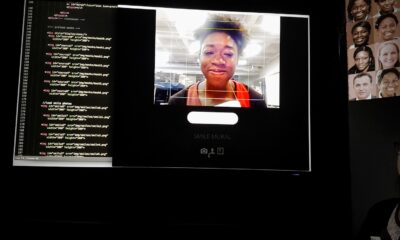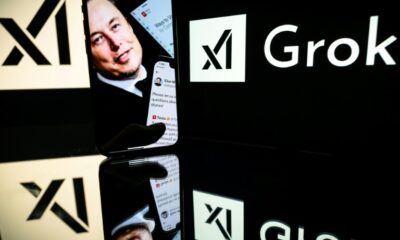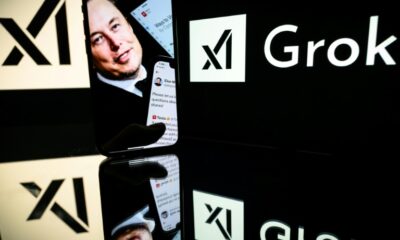Entertainment
Morgan Freeman Takes Legal Action Against AI Voice Cloning
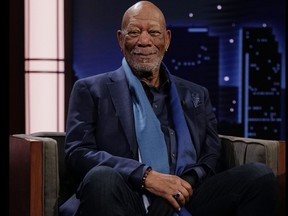
Morgan Freeman, the celebrated actor renowned for his distinctive voice, has initiated legal proceedings against individuals and organizations that are utilizing artificial intelligence to replicate his voice without his consent. The 88-year-old star expressed his growing concerns regarding AI-generated imitations in an interview with The Guardian, highlighting the unauthorized use of his voice in various projects.
Freeman emphasized that the technology has advanced to a point where his voice is being misappropriated for commercial gain, often without his approval or compensation. He stated, “I’m a little PO’d, you know. I’m like any other actor: Don’t mimic me with falseness. I don’t appreciate it, and I get paid for doing stuff like that, so if you’re gonna do it without me, you’re robbing me.” This sentiment underscores the broader implications of AI in the entertainment industry.
Legal Response and Industry Concerns
Freeman’s legal team has been actively addressing the issue of unauthorized voice cloning, reflecting the seriousness of his concerns. “My lawyers have been very, very busy,” he remarked, signaling his commitment to protecting his intellectual property rights.
The actor also criticized Tilly Norwood, an AI-generated digital performer, which garnered attention last month when some talent agencies considered representing her. Freeman dismissed her as “not real,” and noted that such technology undermines the value of genuine human performances. He stated, “Nobody likes her because she’s not real, and that takes the part of a real person. It’s not going to work out very well in the movies or on television.”
The SAG-AFTRA union has voiced its opposition to AI-generated performers, emphasizing that Norwood “is not an actor.” The union described her as a computer-generated character modeled from the work of actual performers without permission or compensation, highlighting ongoing tensions in the industry regarding the use of AI in creative fields.
Reflections on Career and Voice Development
Freeman, known for his contributions to cinema, also reflected on his journey into acting. He nearly pursued a career as a fighter pilot after joining the U.S. Air Force following high school. He recounted, “That lasted until I got into the cockpit of a trainer and had that epiphany that ‘this is not what you want.’” Following his discharge in San Bernardino, he found himself close to Los Angeles, where his fate took a turn towards acting.
Freeman attributes his vocal prowess to the training he received from his college mentor, Robert Whitman, who taught him essential techniques for clear speech and tone control. He noted that many individuals do not realize how to relax their voices, which can lead to a higher pitch than necessary.
As discussions surrounding AI-generated content continue to evolve, Freeman’s legal actions may set a significant precedent regarding the protection of artists’ voices and likenesses in an increasingly digital landscape.
-

 Politics1 week ago
Politics1 week agoSecwepemc First Nation Seeks Aboriginal Title Over Kamloops Area
-

 World4 months ago
World4 months agoScientists Unearth Ancient Antarctic Ice to Unlock Climate Secrets
-

 Entertainment4 months ago
Entertainment4 months agoTrump and McCormick to Announce $70 Billion Energy Investments
-

 Lifestyle4 months ago
Lifestyle4 months agoTransLink Launches Food Truck Program to Boost Revenue in Vancouver
-

 Science4 months ago
Science4 months agoFour Astronauts Return to Earth After International Space Station Mission
-

 Technology3 months ago
Technology3 months agoApple Notes Enhances Functionality with Markdown Support in macOS 26
-

 Top Stories1 month ago
Top Stories1 month agoUrgent Update: Fatal Crash on Highway 99 Claims Life of Pitt Meadows Man
-

 Sports4 months ago
Sports4 months agoSearch Underway for Missing Hunter Amid Hokkaido Bear Emergency
-

 Politics3 months ago
Politics3 months agoUkrainian Tennis Star Elina Svitolina Faces Death Threats Online
-

 Politics4 months ago
Politics4 months agoCarney Engages First Nations Leaders at Development Law Summit
-

 Technology4 months ago
Technology4 months agoFrosthaven Launches Early Access on July 31, 2025
-

 Top Stories3 weeks ago
Top Stories3 weeks agoFamily Remembers Beverley Rowbotham 25 Years After Murder

